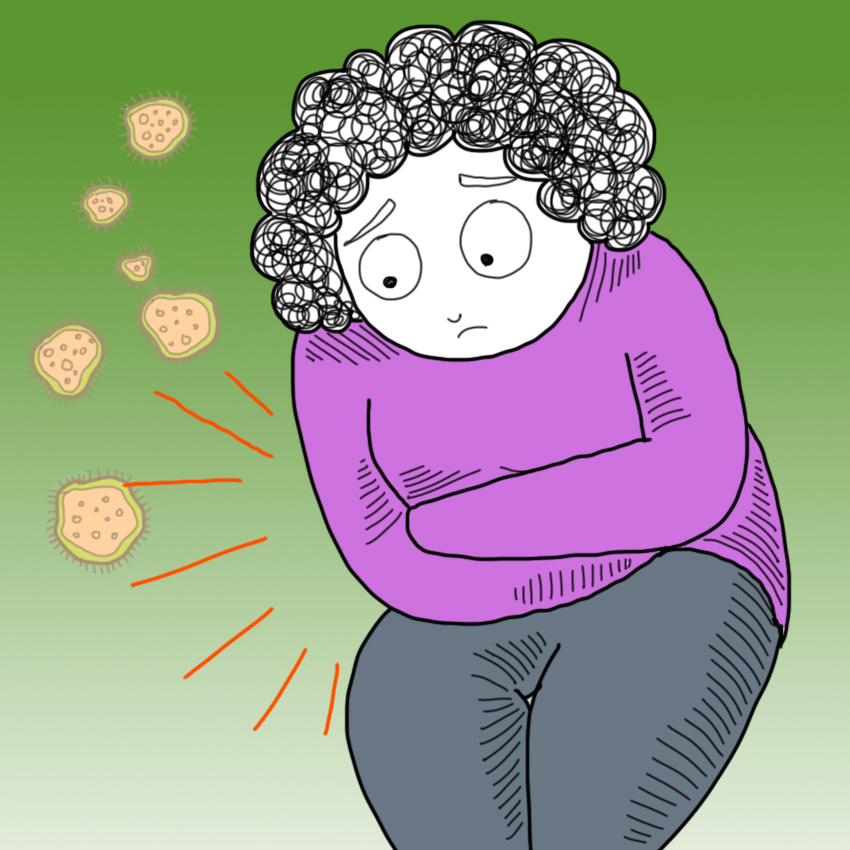It's the dreaded flu season; people everywhere are coming down with the flu, and it's particularly bad this year. Since fall, the flu has continued to worsen and spread throughout the US, explains the CDC.
TIME reports that at least 30 children have already died this year.
So why exactly are people dying from the flu? When you have a weakened immune system, you can come down with complications like potentially deadly infections.
Most of us know we should get ourselves and our family members immunized. But even after getting the flu shot, it's still possible to get sick. One of the prevalent strains of the flu this year is more serious than other strains, and the vaccine isn't as effective against it.
The flu always seems like it should be no big deal, but it can put even the toughest people out of commission for days — or weeks — on end.
Find out more about influenza and some of the most surprising flu facts below!
Photos: Flickr / Lwp Kommunikáció ; Laura Caseley for LittleThings
Fact #1: Influenza Is Very Common

Influenza, also known as the flu, is a respiratory infection caused by a number of viruses, explains the US National Library of Medicine.
They also explain that, every year in the US, somewhere between 5 and 20% of people get the flu.
Fact #2: You Can Spread Influenza Before You Even Have Symptoms

The CDC explains that you may be able to pass on the flu to someone else before you know you are sick.
Symptoms, which include fever, chills, headaches, fatigue, runny or stuffy nose, sore throat, and muscle aches, may not appear until after you've contracted influenza.

People can infect others a day before they start showing symptoms and up to a week after symptoms begin.
Fact #3: The Flu Can Have Some Scary Complications

For most healthy adults, the flu will resolve on its own or with the help of over-the-counter medications.
That said, there can be some frightening complications, including dehydration, sinus infections, ear infections, and bacterial pneumonia.

If you have chronic conditions like asthma, diabetes, or congestive heart failure, the flu can worsen your symptoms.
Fact #4: Certain People Are At Higher Risk Than Others

The Mayo Clinic explains that some people are at higher risk of contracting influenza than others.
Those who are more likely to get the flu and have complications include young children (under age 5), adults older than 65, pregnant women, people with chronic illnesses, and people with weakened immune systems.
Fact #5: Flu Shots Only Protect Against Certain Strains

The CDC recommends that people who are old enough should get annual flu vaccines.
Each year, experts pick which flu viruses are most likely to spread and put those specific viruses into the vaccine.

Unfortunately, even with the flu shot, it's still possible to get the flu (although it's a lot less likely).
Fact #6: Certain Areas Put People At Higher Risk

If you spend time in certain areas, you may be more likely to get the flu.

Areas that are crowded — like schools, office buildings, nursing homes, and public transportation — can all be hotbeds for influenza.
Fact #7: There Are Only Two Effective Ways To Prevent Flu

That's right, there are just two ways to effectively prevent the flu.

"The main way to keep from getting the flu is to get a yearly flu vaccine," explains the US National Library of Medicine. "Good hygiene, including handwashing, can also help."
Fact #8: “Stomach Flu” Isn’t Actually A Flu At All

So, where does the stomach flu fit into all of this? Well, the stomach flu is not actually influenza at all.
The stomach "flu" is actually gastroenteritis, an inflammation of the intestine lining.

Although some people (especially children) may feel nauseous or have diarrhea and vomiting with influenza, if you only have these symptoms, it is probably gastroenteritis.
Please SHARE this article with your friends to spread awareness of the flu!




